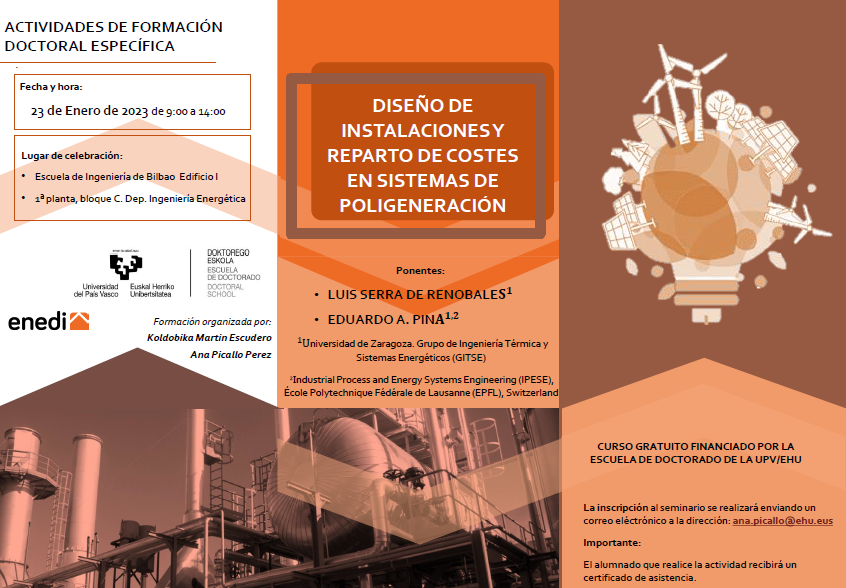FREE COURSE FUNDED BY THE UPV/EHU DOCTORAL SCHOOL

Speakers: LUIS SERRA DE RENOBALES and EDUARDO A. PINA
In the design of trigeneration plants for buildings, two fundamental issues must be addressed: the synthesis of the plant configuration (technologies and installed capacity, etc.) and the operational planning. Given the variety of technology options available and the large diurnal and annual fluctuations in energy demand, finding the optimal energy service delivery system is a complex task.
Cost allocation in multiproduct systems requires special attention because the form of allocation will affect end-product prices and, consequently, consumer behavior. When a polygeneration plant is designed to serve different products, it is possible to achieve a lower total cost.
This seminar is divided into two main blocks: the design of building plants and the allocation of costs to products.
-In the design block, the Mixed Integer Linear Programming model that determines the optimal configuration of the systems that must cover the energy demands of electricity, heating and cooling will be addressed. A model that considers a set of proposed alternative technologies within a superstructure will be studied. Objective functions that minimize the total annual cost of the system will be analyzed.
Cost allocation in multi-product systems requires special attention because the way in which the allocation is performed will affect the prices of the final products and, consequently, the consumers’ behavior. In the cost allocation block, several thermoeconomic analyses will be analyzed to explain the cost formation process of internal and final products in complex energy systems. On the one hand, the thermoeconomic allocation based on the structural theory of fuels and products based on the second principle of thermodynamics will be considered. On the other hand, game theory based partitioning will be raised so that all consumers benefit.
- Session I:
- Introduction to design
- Facility design
- Session II:
- Practical example
- Session III :
- Introduction to thermoeconomic techniques
- Structural theory
- Cooperative game theory
- Session IV:
- Practical example
